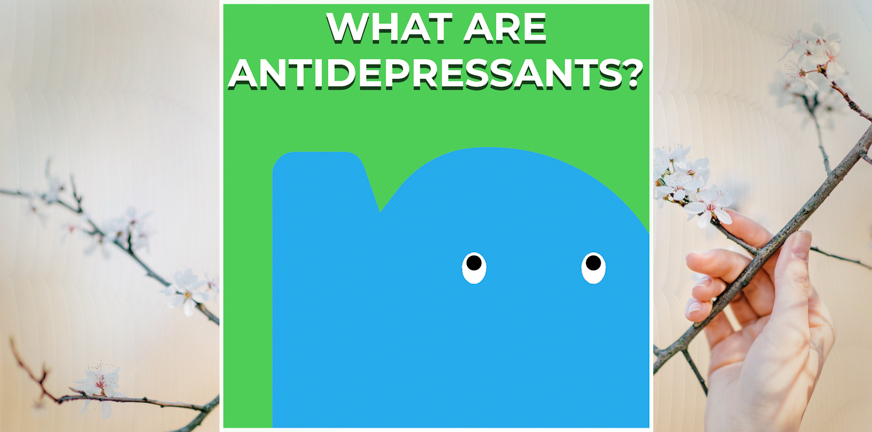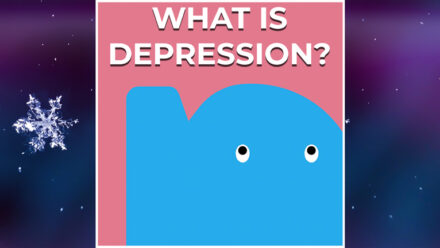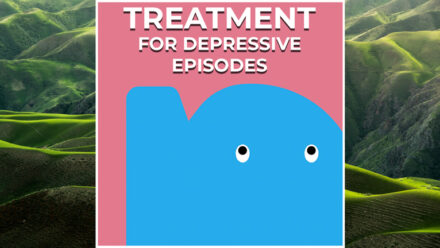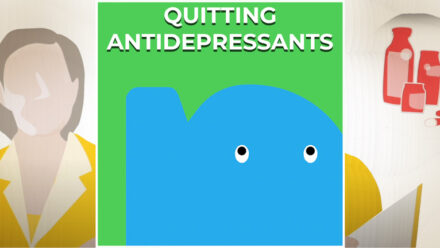
Antidepressants are medicines that can reduce depressive problems (and some other problems, such as anxiety). Antidepressants usually come in the form of pills, or sometimes in liquid form.
Antidepressants affect certain brain chemicals (called neurotransmitters, mainly serotonin and noradrenaline) that are thought to be involved in regulating mood and emotions. In the past, some psychiatrists suggested that a shortage of these neurotransmitters may come with depression and anxiety problems. However, this has never been proven. In fact, to what degree depression is really linked to brain neurochemistry is anybody’s guess. Depression is related to social circumstances, mental processes, existential issues and somatic problems. Multiple factors seem to play a part and it is unlikely that “depression” is a well circumscribed type of illness. Rather, it seems to refer to a very personal negative state of mind that is different for each person.
Antidepressants can help, but not cure you
Antidepressants are not a cure in the sense that they can fix the cause of your depression. That’s not even possible, because depression rarely has a single cause, let alone a single biological one. It is better to think of antidepressants as a little support that relieve you from the strongest negative effects. They can reduce your problems, and thus give you the energy again to work on other aspects of your life and slowly crawl out of the depression. This is why antidepressants are often prescribed together with running therapy, mindfulness or psychotherapy aimed at the underlying causes of your problems like trauma, low self-esteem or perfectionism.
Extra information:
More information on specific antidepressants can be found at Medlineplus.gov (in English and Spanish).




